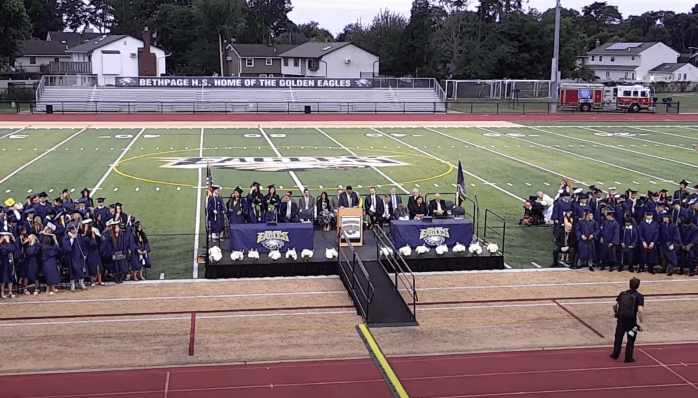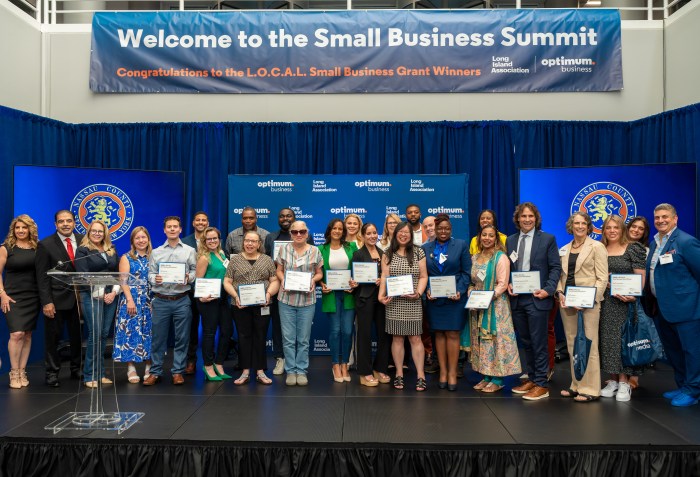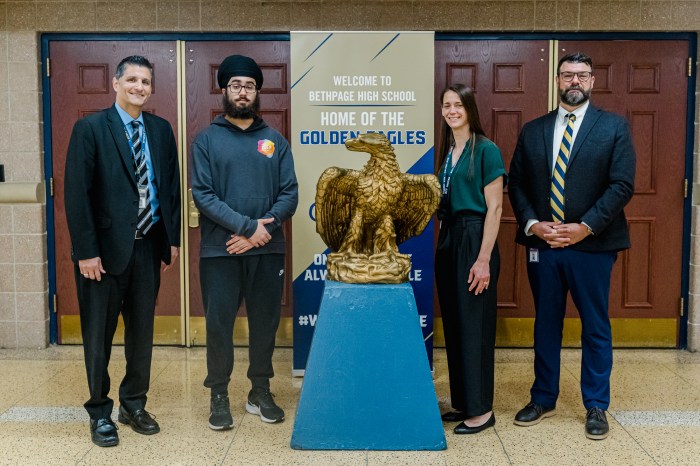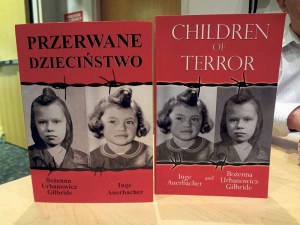
Bozenna Urbanowicz Gilbride was born in 1934 in a small town in the far eastern province of Poland and immigrated to the U.S. in 1947. In high school, she studied sewing and fashion design and later married, had four children and enjoyed a long, successful career in the fashion industry.
Gilbride remains haunted by her experiences before coming to America. As a teen in World War II-era Poland, she and her family—Catholics, who were among the many groups targeted by the Nazis—were transported to a labor camp in Germany in 1943, where they remained for the duration of the war. Now in her 80s, she has collaborated on a 2009 book of her wartime hardships—entitled Children of Terror—with a fellow camp survivor and spends much of her time lecturing across the county on the horrors of the Holocaust.
While speaking about the decision she made years ago to share her harrowing story at a recent speaking engagement at the Plainview-Old Bethpage Library, Gilbride noted that she originally had no interest in revisiting the nightmare of her time in Germany. That is, until she was gently persuaded to do so by a dear friend, Children of Terror co-author Inge Auerbacher.
“I’ve been speaking as a Polish Catholic Holocaust Survivor for 26 years. Years ago, at a Holocaust symposium, I met a fellow Holocaust survivor—a German Jew—and after talking we realized we had very similar stories and we very quickly became friends,” Gilbride said. “She started talking about doing programs together and I resisted because I didn’t want to at first. I just didn’t want to open that door, but she persisted, so we began holding lectures for a number of years. Then one weekend she asked if we could collaborate on a book together. We took a walk together, I cried and after talking, I realized it was something we had to do.”
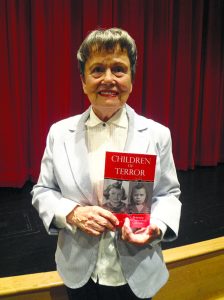
For those assuming that Gilbride was able to achieve a level of catharsis and healing by co-writing Children of Terror, they may be surprised and saddened to discover it has not been the case. If anything, Gilbride said, it’s proved to be a reminder of the fact that the America she moved to and fell in love with in 1947 after escaping the Holocaust has become a very different—and some would say darker—place in recent years.
“The country, and even the world, is so full of hate and violence now, and I know where that takes us. I know how it starts, little by little,” she said. “I cry over America, that we’ve allowed it to get to this point, with such intolerance. Whenever I speak, especially to students, I tell them that the Holocaust was not just about six million Jews, but that countless others were affected as well. I teach what hate did, does and will continue to do if we don’t do something about it.”
The United States is still the greatest country in the world, Gilbride said, recalling the way it welcomed her family with open arms all those years ago. That spirit of love and acceptance still exists and it’s her hope that it will never be stamped out by the cancer of hate.
“I love America. We were treated so well when we came here after the war,” she said. “In high school, we were treated so beautifully by the teachers as survivors. There was no distinction as to who was who, in terms of nationality or religion or anything else. As survivors we were treated with kindness and dignity and it was wonderful. That’s what America is to me.”
Gilbride, now residing in Southampton, has received many awards for to her work lecturing on the horrors of World War II, including three Cross of Merit medals from three Polish presidents. But every time she speaks of her experiences, even after doing so for so many years, she still finds herself having to choke back the tears as she reopened old wounds over and over. However, despite how it pains her to do so, Gilbride said that she is determined to continue on her vital mission—imparting the lesson that those who do not learn from history are doomed to repeat it—for as long as she is able.
“Do you see volunteers in back of me to take my place? No. If not me then, who else?” She said. “Where are those survivors who should be screaming their heads off to our students what happened in World War II? I’m 81-years-old and still in good health and I want to do this for as long as I can until I can’t do it anymore.”




